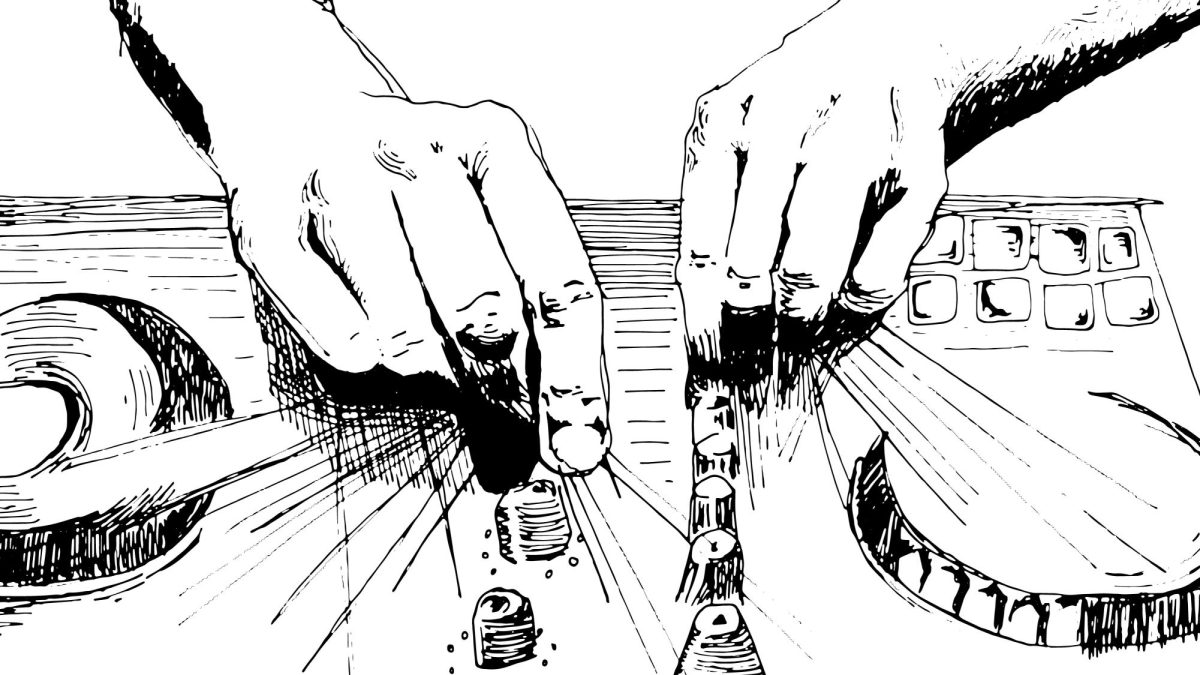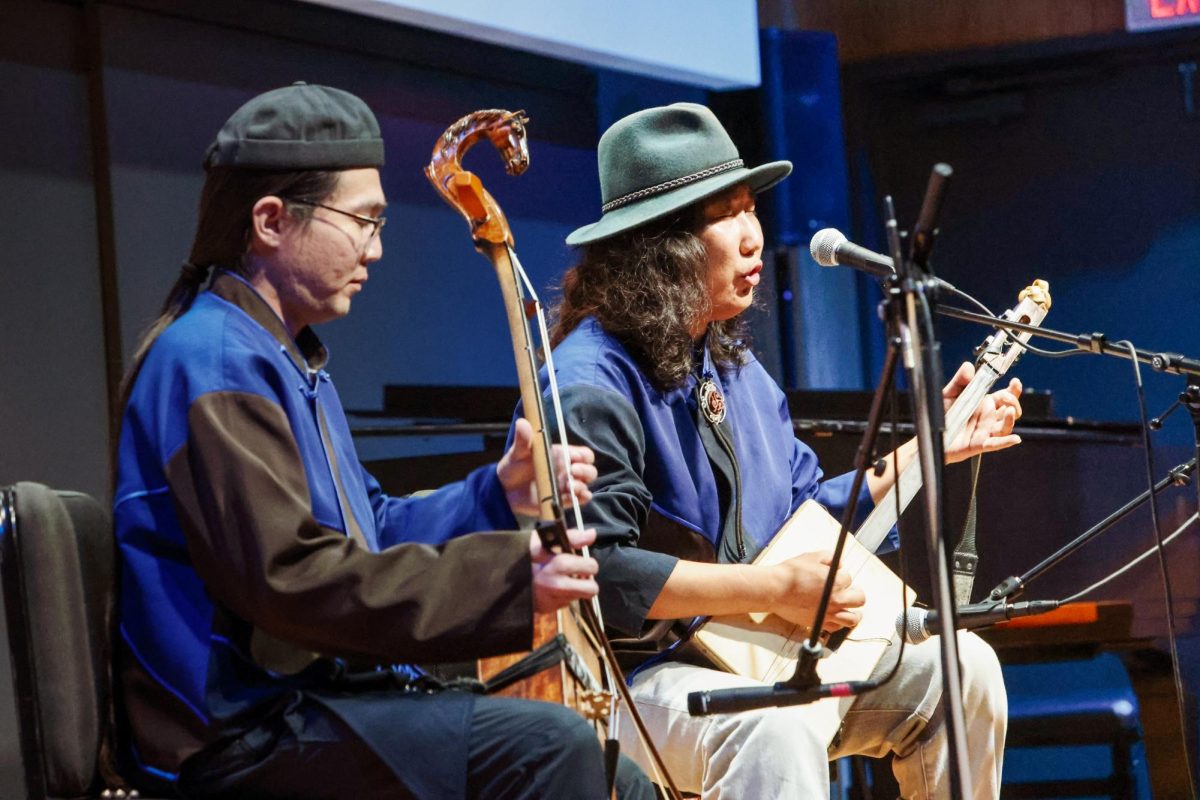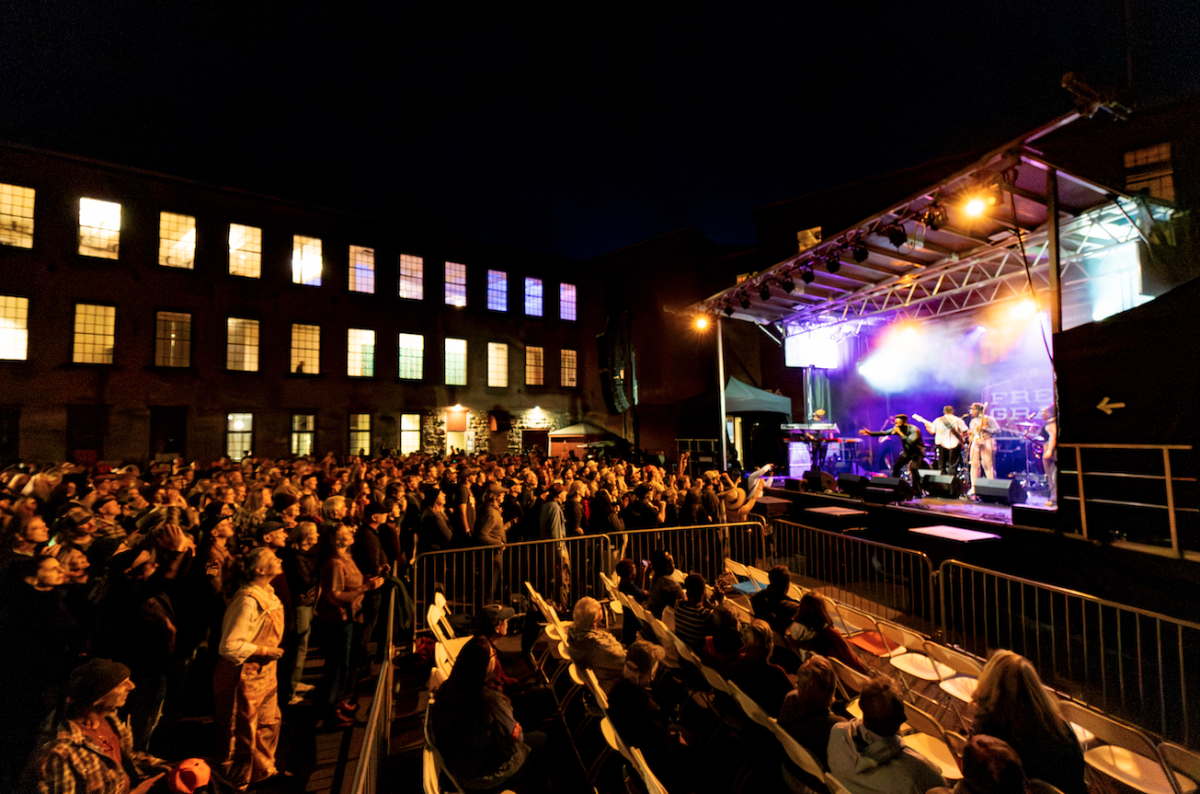Three weeks after receiving her acceptance into a coveted summer production internship, Erin Meadors ’20 received a second email from her new employer. This message did not contain the packet full of forms, housing information and schedules Meadors expected to receive. Rather, she and the 32 interns in the program were informed that they would not be headed to Becket, Mass. for the summer after all. For the first time in its 88-year history, the renowned Jacob’s Pillow Dance Festival had cancelled its summer programming, and with it, its formal internship program.
Meadors’ experience, while disappointing, is not unique. As the COVID-19 outbreak continues to upend communities, many performing arts venues have gone dark for the coming summer as Massachusetts has extended its restriction on gatherings of more than 10 individuals until May 4. Some organizations, like Barrington Stage Company and Berkshire Theatre Group, have decided to rethink their seasons, canceling performances of certain scheduled shows and pushing back others into the fall. But for large-scale summer festivals, which require intensive pre-season planning and depend on a host of moving parts, worries of future restrictions and closure seem insurmountable.
Jacob’s Pillow Dance Festival and the Williamstown Theatre Festival (WTF) are two such festivals; within one week, both announced they would be cancelling their live performances for the entirety of the summer season.
“This was a decision that was excruciating to make,” said Jacob’s Pillow Executive Director Pamela Tatge. “We looked at different scenarios such as starting the Festival later, but ultimately, we had no option when it came to the safety of our staff, artists, audiences.”
The decision not to move forward with the season, which was reached through Zoom conversations between the executive committee and the board and announced publicly on March 31, is a historic one, as Jacob’s Pillow has not been called off since its founding in 1932. Without any sign that “business as usual” will return soon, festivals as large as Jacob’s Pillow quickly knew they would not be able to adapt.
“We have certain fixed costs, and we really can’t run the Festival without our intern program,” Tatge said. “Our interns start on May 19. To prepare for our interns, our seasonal staff starts at the end of April. The idea of making the Festival happen at the level we are used to having it happen — three stages and 50 companies… it’s very hard to take any piece out of that model.”
The uncertainty of what the performing arts will look like after COVID-19 abates has troubled executive directors and summer interns alike, who are trying their best to work past the precarity. Meadors has found it hard to plan ahead without knowing what jobs may be open. And staff members at the Pillow and WTF are dealing with the reality of hefty financial losses, as a great portion of the revenue from both Festivals comes from ticket sales. Jacob’s Pillow had to cut its budget in half, and at WTF, director of finance Amy Russell ’08 has been busy navigating WTF’s new financial situation.
“Friends who don’t know that much about the festival ask me if I still have a job, and they don’t know how busy it is dealing with applying for loans to even be able to be doing what we’re doing right now,” Russell said. “I’ve done a lot of work applying for the CARES [Coronavirus Aid and Economic Security] Act for paycheck protection to ensure that the people who will make the festival happen next year will stay employed.”
WTF’s seasonal employees typically begin work in Williamstown on May 15, which would have left 11 days between the current end date of Gov. Baker’s restriction order and WTF’s normal start date.
It doesn’t help, of course, that both WTF and Jacob’s Pillow bring workers and performers from around the world to their stages. “Not only is [WTF] a public gathering, it’s a public gathering of individuals who travel here from all across the United States,” Russell said. “We do recruiting trips to the West Coast for apprentices and [a non-equity acting company], and we send representatives to a bunch of different job fairs across the country to recruit our seasonal staff and interns.”
At Jacob’s Pillow, six out of the 20 companies slotted to perform at this year’s Festival were coming from outside the United States — a problem, explained Tatge, because international visa processing has been halted. Furthermore, many countries that give funding for the arts have refused to fund companies that continue to tour during the outbreak. “The Canada Council voted not to fund companies touring through July 31, which was an indicator for us that others would follow,” Tatge said. Restrictions on travel would likely have also affected members of the incoming intern class at the Pillow, at least two of whom were arriving from international locales (namely Burundi and Macao).
Without a live festival, however, not even local students will get to experience the immersive internship program they were accepted into. And without hands-on experience as an intern, many of these students will be less prepared to pursue a full-time career in performance or production. Meadors, who would have been one of 10 production interns at the Festival, said she was looking forward to meeting more dancers in the Berkshire County community, and exploring whether she would want to pursue arts production as a career.
“This was going to be testing out how I like working in production in a more professional setting,” Meadors said. Interning at the Pillow can be a stepping stone to permanent employment at prestigious arts organizations — for example, Jodee Nimerichter, the current head of the American Dance Festival, was once a Pillow intern. As a graduating senior, Meadors thought she might extend her internship into the year if the experience was positive.
“The Pillow has a yearlong fellowship program but usually you intern there first, to see if you like it before you apply, and so that they know you when you apply,” Meadors said. “If travel is still up in the air in August, though, they may not even be doing that fellowship.”
The School at Jacob’s Pillow still plans to offer virtual masterclasses, but internships like Meadors’ — which would have exposed interns to Festival set-up, company load-in, and the technicalities of operating light and soundboards — cannot make the transition to a digital format. “There’s a lot of stuff within production design you can do from far away, but those things are more inaccessible to newcomers to the field,” Meadors said.
Although WTF announced that it would present its seven-show season on Audible, a platform for audiobooks and spoken-word entertainment, the majority of WTF’s expansive behind-the-scenes workforce will not be coming along for the remote ride. Sara Rosenthal, a sophomore at Kenyon College and aspiring theatre professional, was waiting to hear back about her application for WTF’s competitive apprentice company when she heard the news that the Festival was going online.
“The New York Times released the news, and I guess they sent a letter to their subscribers, and then they changed their website page,” Rosenthal said. “Three hours later, they sent us an email announcing they can’t go through with the apprenticeship this summer, and gave us two options: we could refund our application fee or defer our application to next year.”
Like the Jacob’s Pillow internship program, WTF’s apprentice company is a gateway into the professional performing arts world (past apprentices, boasts WTF on its website, include Phillip Seymour Hoffman, Kate Hudson and Christopher Reeve). But many of the tasks that the apprentice company usually performs in addition to the acting courses they attend — such as ushering, manning the box office and moving props and set pieces during staged productions — are rendered moot by WTF’s changed format.
“The apprenticeship is only a quarter classes, so I don’t know what they’d ask us to do [virtually],” Rosenthal said. Part of the difficulty in determining whether certain jobs will stay relevant lies in the fact that presenting WTF over Audible is new terrain for everyone involved. “With Audible, we’re still trying to identify as much as possible that we can preserve — whether we can still have directing assistants or interns working on , but nothing’s been finalized with regard to that yet. Now that we’ve made the decision to move forward in this way, our next step is to try to preserve as much as possible and to take care of as many people as possible,” Russell said.
The work of WTF and Jacob’s Pillow is not solely concentrated on festival offerings — both organizations have also expanded community engaged programming in recent years, which might be able to continue in spite of festival cancellations. Sandra Burton, the Lipp family director of dance and a member of the board of community engagement at Jacob’s Pillow, has been working to determine strategies for maintaining the Pillow’s work within Berkshire County, which includes “Curriculum in Motion,” a program that uses dance to embody concepts in Biology, Math and Spanish in Pittsfield public schools.
“The Pillow is a fiscal anchor, an educational anchor, and a cultural anchor in our community,” Burton said. “There are relationships with organizations and people in Pittsfield and other communities in Berkshire County that can’t be dropped.”
WTF is adopting a “wait-and-see” posture towards its Community Works program, which connects Berkshire residents with Festival artists to develop a new theatrical work that premieres in August on the ’62 Center Mainstage. For now, teaching artists associated with the Community Works program are conducting acting workshops remotely, via Facebook Live and by telephone.
While the cancellation of these festivals is devastating for many, the absence of live arts programming in the Berkshires this summer might remind audiences of the importance and power of communal gathering, and allow festivals like Jacob’s Pillow and WTF to channel their energy into exemplary virtual work as well as a renewed commitment to stellar programming when audiences are allowed to gather again.
“Something I’ve been talking about is how important it is to feel the grief that we all have. All the artists and audiences who really look forward to this every year just had to stop,” Tatge said. “At the same time, we’ve been here for 88 years, we’ll come back, and we just hope we can get through this time from a financial perspective, because that is really real.”








